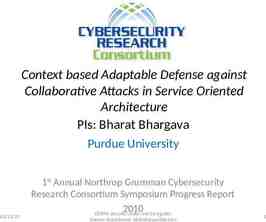CONSIDERING ADOPTION Mr. Pardi| Human Growth and Developmen t
17 Slides526.57 KB

CONSIDERING ADOPTION Mr. Pardi Human Growth and Developmen t

WHAT IS ADOPTION? Adoption is the legal process through which a child’s legal guardianship is transferred from his or her birthparents to adoptive parents. This is an option presented to many who have an unplanned pregnancy. It lets the couple feel confi dent that their babies needs will be met by those with more means.

ADOPTION STIGMA Although most people accept adoption as a suitable option, there are those who disagree with it. They commonly refer to it as “giving your baby up for adoption”. This gives the impression the birth parents do not care about the child. THIS IS NOT TRUE. Birthparents want what they feel is best for their child, even if it means placing their trust in someone else.

EXPLORING ADOPTION There are multiple types of adoption, and it is important to understand all of them. You never know if you might decide to adopt. Adoptions may be one of two types – Agency or Independent. In an agency plan, the birth parents and adoptive parents make an adoption plan with the help of a state-licensed adoption agency In a independent adoption- there is no agency, just the two sets of parents. It is also known as private adoptions.

ADOPTION AGENCY (PUBLIC) Is an organization that has been licensed by the state to arrange adoptions. There are both public and private agencies. Public agencies are run by the state child welfare department They have children who are taken into custody by the state. These children were either abandoned, surrendered, or taken away from their parents. In these cases, a judge will determine whether the children can be adopted by other families. They arrange quick adoptions at little or no cost to adoptive parents. (They also try to place siblings together) These agencies often have a large number of older

ADOPTION AGENCIES (PRIVATE) A private agency is one that is not run by the government. Some are run by religious or community groups. Private adoption agencies may or may not run for profi t. The wait for a child may be longer than a public one. One advantage of adopting at a private agency is a better chance of adopting an infant.

AGENCY ADOPTIONS Whether it is private or public they are all run a little diff erently, so here are some general things are state required: The agency handles the legal aspects of adoption. This includes the lawyers notes, the correct legal documents, , setting a court date, etc This allows the birthmother to focus on having a healthy pregnancy. They usually provide counseling to both sets of parents. (It is off ered, during, and after) In counseling both parties share how they feel about he adoption.

AGENCY ADOPTION Many birth parents have fears about placing babies with an adoptive family. Many of these fears are removed when they learn how strict the criteria are for someone to qualify to be adoption options. Some agencies are more strict, they will only allow couples with good health/age and income to adopt. Most ask that the couple have a criminal and personal check, a home study, and conduct interviews with the parents.

AFTER THE BIRTH (RELEASE AND CONSENT) After the baby is born, the birthparents sign a release form. This gives the agency or adoptive parents permission to take the babies from the hospital. After this, they need to get a form of consent. In many states, that is the last opportunity birthparents have to change their mind. Because of this, some birth parents will not sign the form without their permission. (Generally, they might take up to a few days) Once the papers are signed, these end the birth parents legal rights and responsibilities.

ADOPTION PROCESS (THE FINAL HEARING) After the consent form comes the fi nal adoption hearing. It varies state by state how much time passes between each the signing of the consent form and the hearing. After the fi nal adoption hearing the court seals the adoption record and original birth certifi cate. After this, the original birth certifi cate cannot be obtained without a court order.

INDEPENDENT ADOPTIONS It is legal in most states. In some states it has become more common than agency adoption. Independent adoption service works with adoption and not licensed by the state. Independent Adoption may also be mediated by an attorney, doctor, or religious leader. No matter who does it, an attorney is needed to fi nalize a process. The key diff erences between this and agency is that both parties must supply an attorney. Also, the baby will go home with the adoptive parents right from the hospital

CLOSED AND OPEN ADOPTION Adoption has changed a lot in he last 40 years. Today, the birth parents have a choice of open or closed adoption. Closed- is adoption which there is no contact between the birthparents and the adoptive family after the baby is born. Open- involves some degree of communication between the birth parents and the adoptive parents. It boils down to how much information Before the 1970’s, almost all adoptions were closed. Today, most of them are open. Some might work with the adoption agency as a medium. This is why adoption agencies try to match parents that agree on the terms of the adoption. (How open it would be)

LEGAL ASPECTS OF ADOPTION Child birth is EXPENSIVE. Because of this, adoptive parents will help cover the cost, if not, pay for the whole bill. The birth parents may also be paid by the adoptive parents for the their legal fees. After that, they cannot spend anymore money or else it is viewed as SELLING A BABY ILLEGAL. Birthfathers have more rights than previously. There was a time when birth mothers could sign adoption consent forms without the husbands consent. If the father denies the consent, he may raise the Child himself, or deny paternity.

LEGAL ASPECTS OF ADOPTION When a birth father cannot be located it is up to the courts to send him a legal notifi cation, along with any state specifi c legal steps. Once those needs have been met and the location is still unknown, the mother may continue without the father’s consent.

WHY PARENT CHOOSE ADOPTION Parents reasons may vary: Many do it so they can continue their life goals. They might be too young. (Teen parents) Still, most commonly, birth parents place their children for adoption out of love and concern. Any believe the adoptive parents can give their child a more stable home and environment to grow up in.

WHY COUPLES CHOOSE TO ADOPT Couples and single people choose to adopt for many reasons. Most to become parents. Many times it is because they cannot conceive. Others, who are single, cannot fi nd a spouse or partner. Many single people may choose to adopt to experience the joys of parenthood Others do it for humanitarian reasons. To save a child from being an orphan.

AN ADOPTION FAMILY Bringing an adopted child home matches the excitement and work and of a birthparent bringing their child home from the hospital. They will grow and love each other just like a normal family. The question is, when do you tell them they are adopted? Experts agree they should start explaining it at an early age. Explain to them what adoption is, and where they fi t into it. Let them grow into the idea, rather than wait. There are support groups to help the parents’ And child work through the situation.






